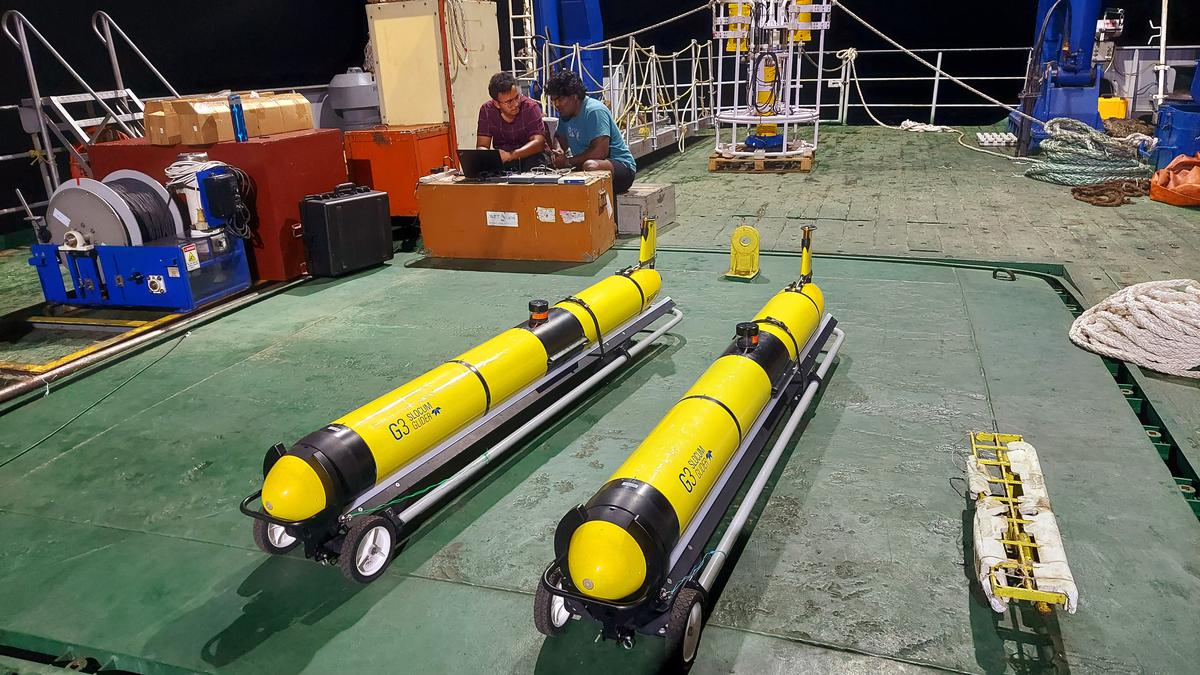
INCOIS deploys two more deep sea gliders into the Bay of Bengal to study climate change
The Hindu
INCOIS deploys two more deep sea gliders into the Bay of Bengal to study climate change
The Indian National Centre for Ocean Information Services (INCOIS), under the Ministry of Earth Sciences (MoES), has just launched two fresh modern deep sea ‘Slocum’ gliders in the Bay of Bengal, one programmed towards the north and other towards the south to study the physical and biogeochemical parameters of the sea and get an insight into the climate change.
The state of the art gliders are equipped with sensors to track temperature, salinity, chlorophyll, dissolved oxygen, PAR – photosynthetic active radiation in the sea water among others. The gliders have been deployed from the Ocean Research Vehicle ‘Sagar Manjusha’ of the National Institute of Ocean Technology (NIOT) off the Chennai coast outside of the EEZ - exclusive economic zone boundary.
Senior scientists E. Pattabhi Rama Rao and A. Aneesh Lotliker informed that these gliders can go underwater up to a depth of about 1,000 metres and will surface four to five times a day, continuously giving data for the satellite to pick up and relay the same to the newly established ‘National Glider Operations Facility’ at INCOIS here at Pragatinagar, Kukatpally.
“The best part of these gliders which run on lithium-ion battery is they come with an extended battery life of nine months and more to cover both the north and south transect of the Bay of the Bengal. We can easily monitor and manoeuvre their functions and get real time data as well as updates about the battery life. They can travel up to 15 km a day,” they explained.
While the project comes under the ‘Deep Ocean Mission’ of the Ministry, it is not for the first time that the institute has deployed gliders to scour around the sea. Two years ago, in the maiden effort, two gliders were deployed as a trial run into the Bay of Bengal.
“They moved around the sea for up to 2.5 months. We retrieved the glider and successfully recovered the more exhaustive stored data. It is currently being assessed here,” said Scientist S. Shivaprasad. INCOIS has about four gliders - two undergoing ‘ballasting’ and is planning to source six new ones for deployment in the other parts of the Indian Ocean.
In ‘ballasting’ the gliders recovered from the sea are retrofitted suitable for the waters in which they are to be deployed like salinity and others. For instance, the gliders used in Bay in Bengal will be of different yardstick as the sea freshwater from rivers of Ganga and Brahmaputra pouring in, whereas in the Arabian Sea such freshwater inlet is not much, he said.













